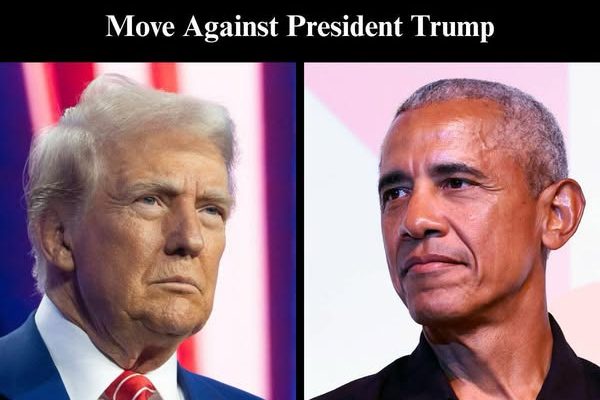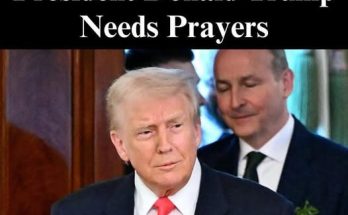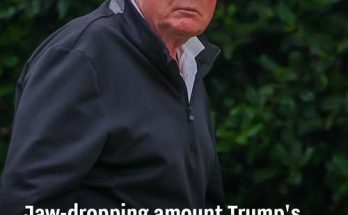Former President Barack Obama boldly argued for more government control over what Americans can say online in a troubling conversation that has sparked debate across the nation. For many older Americans, this raises concerns about online censorship and the future of online freedom of speech.
Obama asserted during his June 17, 2025, speech at The Connecticut Forum that the government should take action because the internet has turned into a haven for misunderstandings, false information, and harmful discourse. Giving Washington more control over speech, however, seems more like a warning than a solution to many Cold War veterans who experienced McCarthyism and battled for civil rights.
Obama’s Argument for Power: “We’re Debating What’s Real”
Obama started his interview with historian Heather Cox Richardson with what appeared to be a straightforward metaphor. It’s acceptable to disagree about a piece of furniture, he said; you may not like the color or the design, but that’s just your opinion. However, the discussion veers outside the bounds of reason if someone insists that the table is a lawnmower.
He contended that this is what’s taking place right now. Obama cautioned, “We are now in a situation where we are having these just basic factual arguments.” He claimed that those in positions of authority, whether they be financial or political, intervene and profit from this confusion.
Obama claims that the true threat is this “flooding of the zone with untruth,” a phrase he attributes to both former Trump advisor Steve Bannon and Vladimir Putin. He maintained that manipulators don’t need to persuade people when they flood the public with lies. All they have to do is force them to give up all belief.
Although his worry might seem legitimate to some, many Americans, particularly the elderly, who are aware of how easily governments can overreach, heard something quite different: a call for stricter speech regulations and government monitoring.
A Quiet jab at Trump — and a Clever Call for Regulation
Obama made some scathing comments in his speech that appeared to be aimed directly at former President Donald Trump, even though he did not name specific individuals. He cautioned against leaders and candidates who say elections are fair when they win but rigged when they lose. “Whether or not everyone believes it is irrelevant,” he stated. “If everyone starts sort of throwing up their hands, that’s all that matters.”
He asserted that an entire political party has been tainted by this “resignation” from truth. Furthermore, he believes that altering the laws governing online speech is just as important as educating the public.
Where Obama Goes Too Far: “We Want Diversity of Opinion, Not of Facts”
Obama’s comments near the end of the interview were arguably the most contentious. He made it clear that he is in favor of “regulatory constraints” placed by the government on the way social media companies function.
Let that sink in: a former president of the United States is proposing that, in the interest of preventing harm, tech companies should be legally compelled to regulate what users are permitted to post.
Despite Obama’s insistence that such measures would be “consistent with the First Amendment,” many Americans—especially older citizens who have witnessed history repeat itself—do not share this view. Online freedom of speech has long been one of democracy’s strongest safeguards, and any attempt to “regulate” it begs the question of who has the authority to determine what is and is not true.
Where Does It End When the Government Determines What You Can Say?
Seniors have learned important lessons over the past century, such as the perils of propaganda and the repression of state-controlled speech in other countries. Many recall the ease with which freedom can be exchanged for security or authority.
Obama’s plans might not appear to be complete censorship. But where does the line become when the government begins deciding what constitutes appropriate speech? Who gets to define “misinformation”? More significantly, who is silenced?
Obama asserts that “business models that elevate the most hateful voices” are the driving forces behind social media platforms. However, detractors contend that letting bureaucrats decide what constitutes “hateful” or “dangerous” speech is a slippery slope that jeopardizes the concept of free speech itself.
Washington May Not Have the True Answer
Some contend that greater education, digital literacy, and individual accountability are necessary in place of more regulation. Allow parents to instill critical thinking skills in their children. Let adults make their own beliefs and allow discussion to thrive, even if it causes discomfort.
In addition to being fundamentally un-American, the notion that the government must intervene and determine what constitutes “fact” is a betrayal of the idea that the people, not politicians, should be the ultimate arbiters of truth.
Obama’s vision sounds more like a warning than a solution to the millions of Americans who value the Constitution, including those who experienced the struggle for civil rights and against totalitarianism.
Now What?
The battle for online freedom is just getting started as more and more leaders from both parties advocate for some kind of internet regulation. Seniors who still believe in a free exchange of ideas are on the front lines of this argument, standing up for what they know to be true: once you give someone the ability to silence others, it rarely ends where it started.
Regardless of your opinion of Obama, his remarks have spurred an important discussion that all generations, but particularly the one that fought to defend our liberties, need to have.
Although there is a lot of nonsense, chaos, and mess on the internet, freedom also exists. Freedom is also worth defending.



